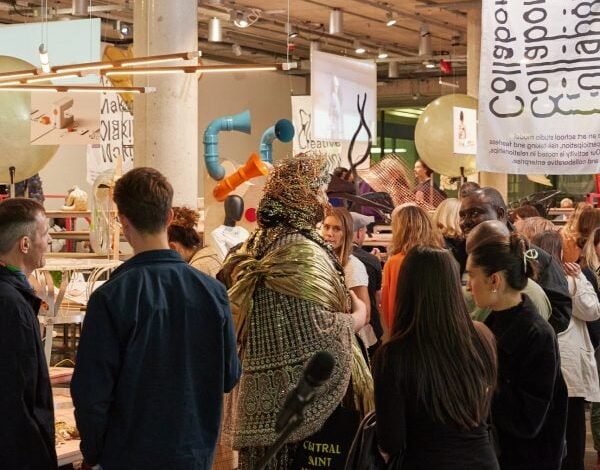
UPM and Central Saint Martins address fossil-free future in discussion
[ad_1]
Promotion: according to experts at a panel discussion hosted by Finnish bioeconomy company UPM at Central Saint Martins, brands need to transform their business models in order to reach a fossil-free future.
Dezeen’s editorial director Max Fraser was part of the panel of judges and sustainability experts who came together to discuss how fashion and design brands need to transform and pioneer a net zero circular economy.
The discussion, which took place during the London Design Festival, was led by UPM’s vice president of sustainability, Martin Ledwon.
It also celebrated an exhibition of Central Saint Martin students’ work, featuring concepts for everyday products to exit fossil-based materials, which were informed by UPM’s bio-based ingredients.
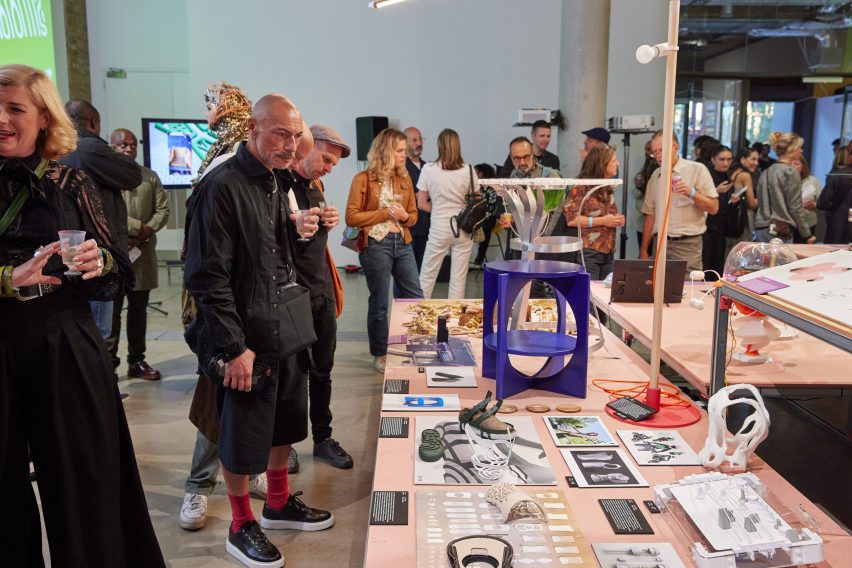
Panellists included artist and campaigner for Cool Earth and Greenpeace, Daniel Lismore; sustainability consultant for British Fashion Council and Earthwatch, Dax Lovegrove; Dezeen’s editorial director, Max Fraser; and designer and design consultant at Central Saint Martins, Jane Penty.
All panellists agreed that while incremental changes to product strategies are encouraging, it’s now necessary to transform business models to meet climate goals.
Dax Lovegrove spoke of circular initiatives in the fashion industry, such as resale, rental and repair schemes, that some companies are starting to adopt.
“I think by 2030 it will be mainstream,” said Lovegrove. “Selfridges and Far Fetch and some others, have committed to half of their transactions being circularity related by 2030.”
“If we can get others to move into that, that’s when we start to dematerialise our economy and the way we do business.”
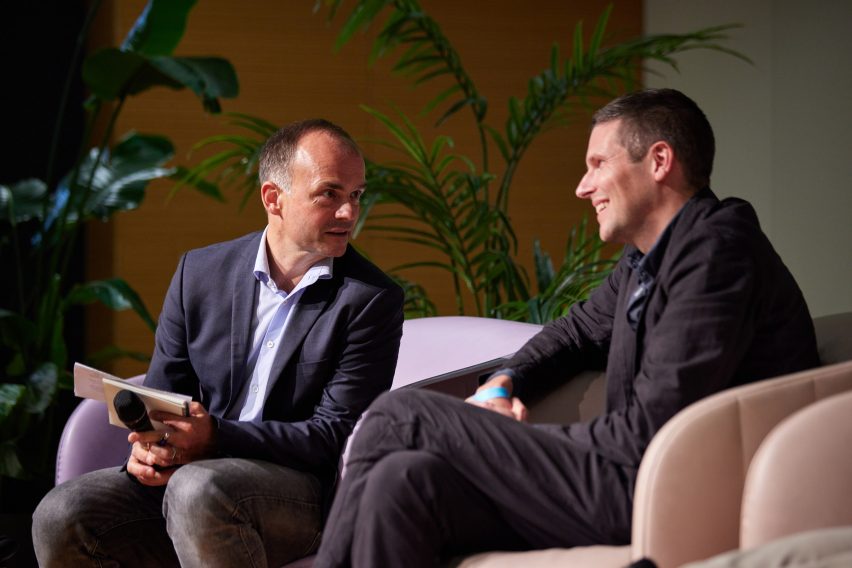
When asked if there was market demand for sustainable products, Daniel Lismore said he believed that companies could make “millions” by adopting circular business models and embracing renewable and circular materials.
“There’s a lot of money to be made from real sustainability,” he said. “All these companies are going to get really stuck if they leave it too late to get to net zero, so they need to do it now. There’s no time to waste.”
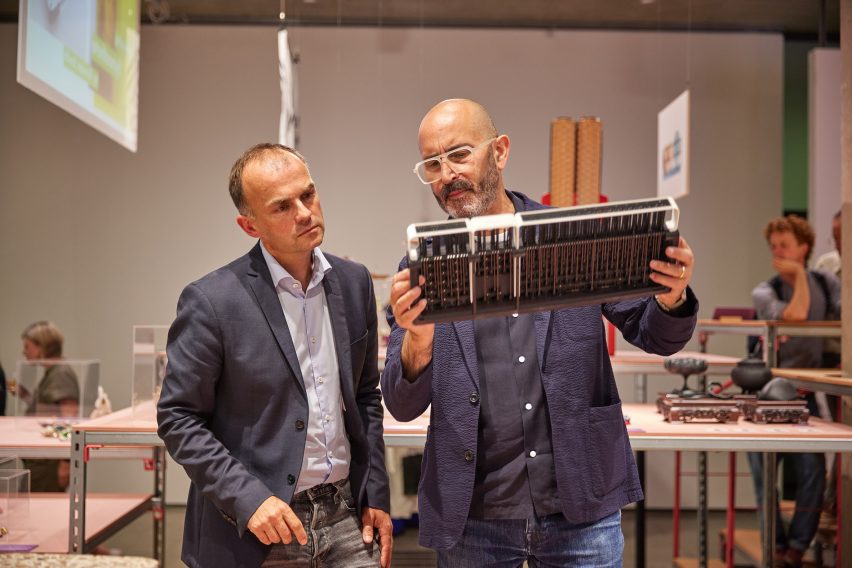
Meanwhile, Jane Penty commented: “Research does not prove or show that sustainability is the first criteria that people shop for, even if they have those values. There is a massive value to action gap.”
“As designers, we have to close that gap,” she continued. “We need strong leaders in government and in management positions to do the right thing regardless because we have to do the right thing and then people will buy the products and have those credentials.
“Because they shouldn’t be choosing, there shouldn’t be a sustainable and unsustainable choice.”
The panel agreed that industry regulation, B Corp certification and government policy were proven ways to drive change and make responsible products and materials mainstream.
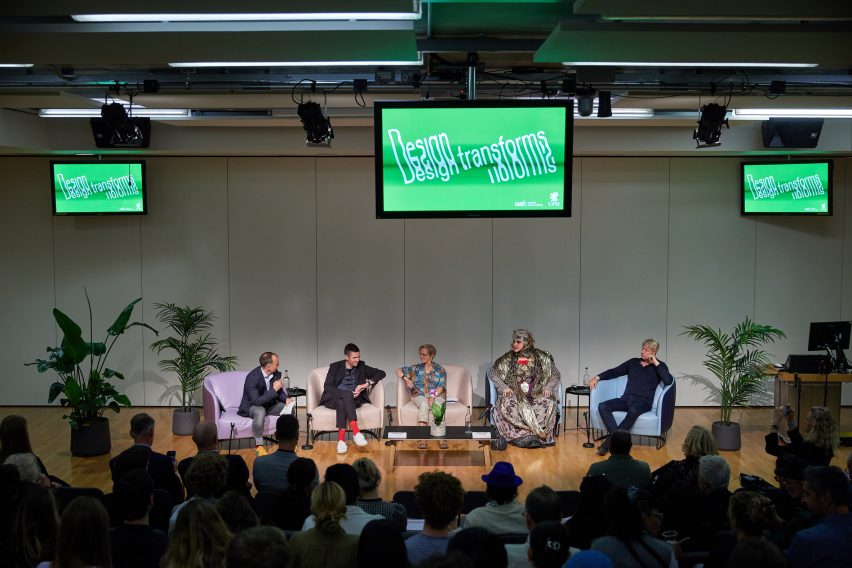
In addition, the experts agreed that there is an important role for the media in helping the public to decipher genuine sustainability claims from greenwashing.
“As a species, we love a singular solution,” said Fraser, bringing focus to the complexity of the issue. “Materially, we’re looking for the golden ticket, the material that will solve the problem, such as hemp, mycelium or wood.”
“We need to go back to neo-regionalism where we are working with materials that are appropriate to the geography that we are operating in,” continued Fraser.
The new fossil-free ingredients for the chemical industry are made from FSC-certified waste wood regionally and sustainably sourced. UPM’s Leuna biorefinery in Germany will go into full production in 2024, according to the company.
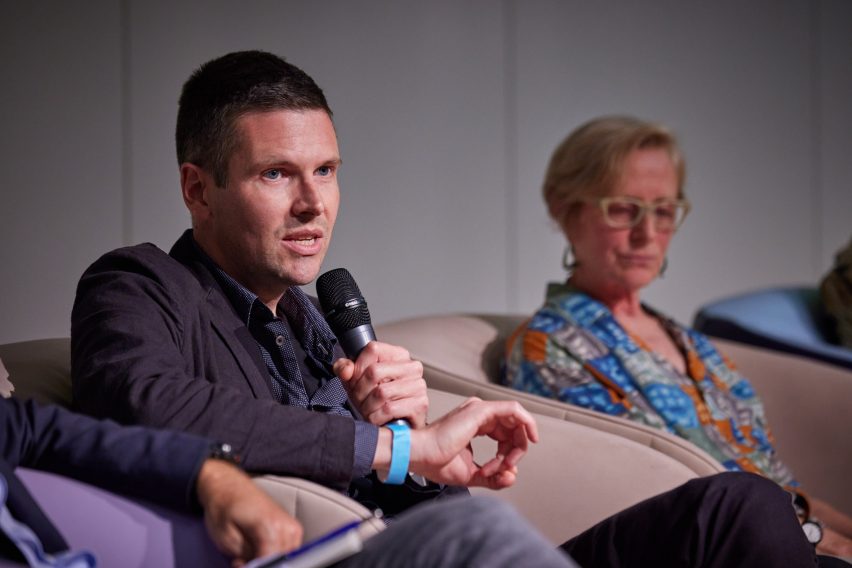
UPM is itself on a journey. It is focused on producing a variety of renewable fuels and chemicals made from sustainable biomass and transferring its experience of forestry and forest products from traditional industries such as pulp and paper production to new businesses.
It will start with bio-based monoethylene glycol, an essential ingredient in polyester, PET and polyurethane, which is currently made from fossil oil.
“Creating a vision for the defossilisation of various industries is a task that goes beyond one company – it’s a collective effort, best driven by ingenious minds and disruptive ideas. In this spirit, we partnered with UAL Central Saint Martins”, said Ledwon.
Reviewed by a panel of judges, 50 student concepts were whittled down to eight shortlisted finalists that included a flatpack side table made from a single sheet of bioplastic material, a mono-material and modular motorcycle armour and a versatile and interchangeable snowboard binding.
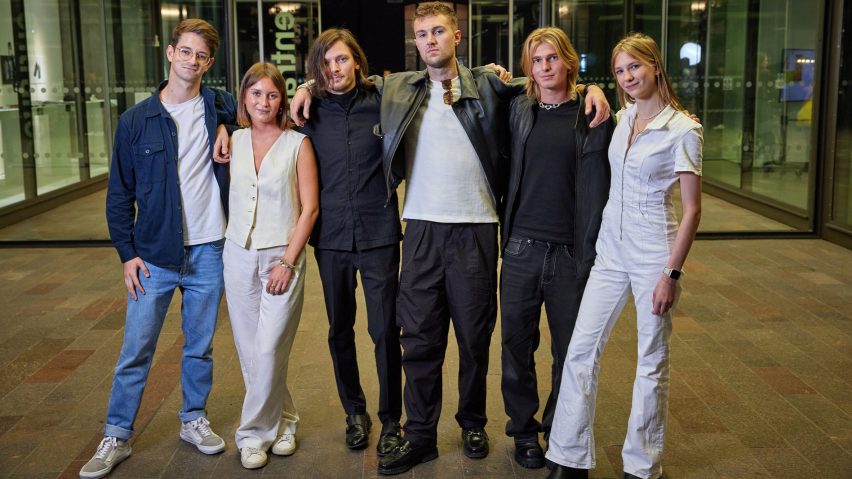
“Through our partnership with UPM, we have gained an invaluable opportunity to engage with concrete and pressing needs in design for manufacturing,” said Nick Rhodes, programme director of product ceramic and industrial design, at Central Saint Martins.
“This collaboration has challenged us to develop compelling propositions that not only demonstrate but advocate for the urgent transition away from fossil fuels in manufacturing materials.”
To find out more about UPM and its collaboration with Central Saint Martins, visit its website.
Partnership content
[ad_2]





